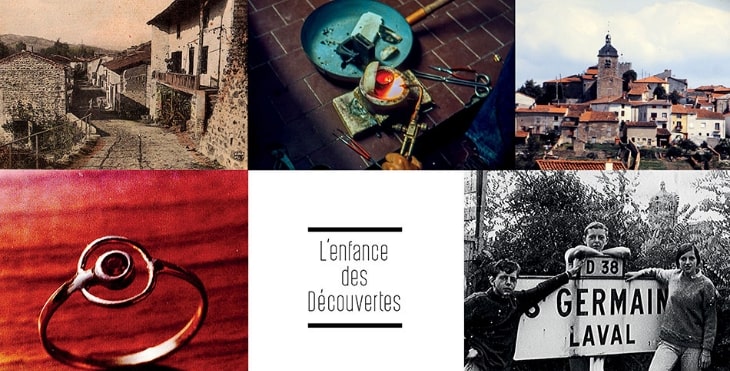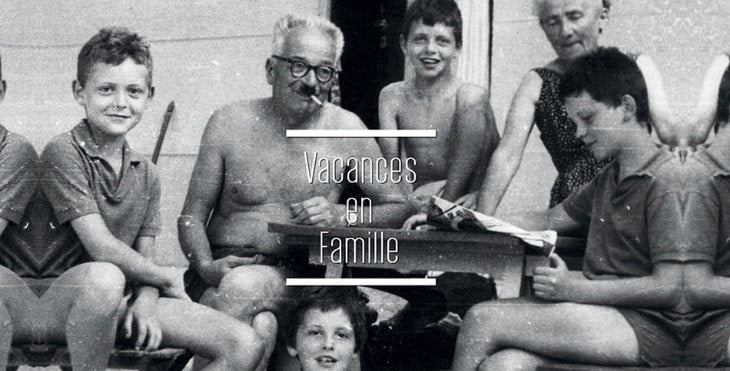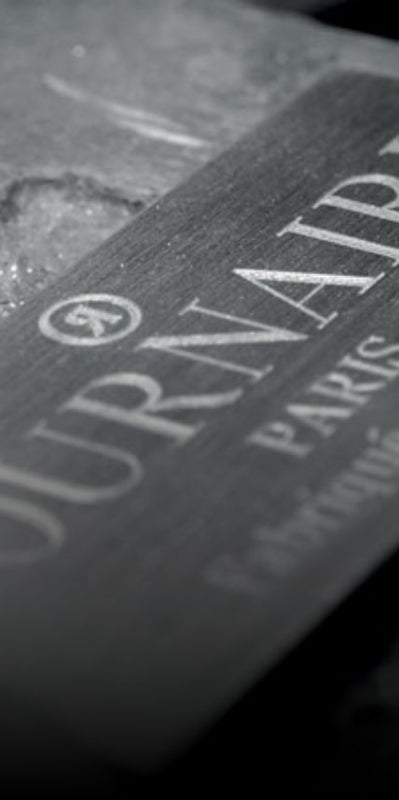THE CHILDHOOD OF A CREATOR
"Everything is possible if you are foolish enough"
Niels Bohr. Nobel Prize in Physics 1922
CHILDHOOD DISCOVERIES

As a child, I used to dismantle alarm clocks and clocks to understand why they ticked so magically, and to have the pleasure of reassembling them. My great-grandmother Marthe, who loved me dearly and whose kindly gaze reassured me, would make me learn my lessons when my asthma prevented me from going to school. And when she saw me tinkering with the alarm clocks, she liked to say to anyone who would listen:
"This one is a future jeweler.
Philippe Tournaire
I never imagined that asthma was an opportunity, and that my destiny could be turned upside down thanks to this illness! My brothers affectionately called me "la crevure"... Always looking for solutions, Mum finally found a way to treat me and allow me to pursue a minimum of education... In Briançon, there was a high-altitude school where children with respiratory problems could go. So, at the age of 12 and for 5 years, I went to boarding school at the Lycée d'altitude de Briançon to combat this invasive ailment that was penalizing my growth. With a 6-hour drive, I only went home to my family at Christmas, Easter and the summer vacations. Yet I still have wonderful memories of those years. Boarding school, when you only go home every 3 months, is a real bonding experience, creating groups and a real community life.
With more solidarity than rivalry, we stuck together on the "blues" and enjoyed these moments of simplicity.
At boarding school, there were precise rules that had to be respected. Some of them seemed silly, like the one stipulating that we couldn't have our hair touching our ears when we wanted to go out, at a time when the first photos of the Beatles and the Rolling Stones were appearing in record shop windows... But it was the rule, and we put up with it, together finding ways to improve the ordinary, which was quite constructive, but also a great bond between us. We often took the scissors to the dormitory the night before to adjust the length, each going round the other's ear, not forgetting the giggles that went with it.
We were free to go out in small groups of 3 to 5, as long as we stuck together "just in case". Before going out, the "surgé" would check that everyone's haircut was in order, and hand out the exit ticket. If any of us had hair that touched our ears, the ticket was torn up and the group didn't go out. It may seem unfair, but it taught us the notion of solidarity and respect for the group. Once out, everyone did what they liked, the main thing being to get back together on time.
FAMILY VACATION

I loved spending my Thursday afternoons in the Briançon library. I was fascinated and intrigued by science, and Dad was a big part of that. He had the ability to answer all my questions on a wide range of subjects, and I have to give him credit for this, which remained true right up to the end of his life. He was a well of science and an inexhaustible source to which the whole family always referred. In that famous library, I learned one striking thing: that Einstein had written to President Roosevelt to research nuclear weapons and launch the Manhattan Project that would lead to the first atomic bomb... The Internet and search engines were out of the question, and collecting information left and right helped me develop a great curiosity.
I had other hobbies. At boarding school, to integrate us, we were sponsored by a senior, with whom I discovered the film club and astronomy. The teachers were also very involved in our care, especially in physical education where our respiratory difficulties were remedied by sport. I still enjoy cycling to this day.
As early as 6th grade, my French class included a painting by Paul Klee called "Château". This work of art, which I contemplated for hours on end, was to be a defining moment in my life, inspiring my future creations. This fascinating memory is still with me after so many years.
I learned much later that the school's principal, André Rouède, was a visionary, ahead of his time when it came to education. He wrote in a book, "Le Lycée impossible", just before May 68: "To raise the level of humanity... that's what I was paid to do". I was lucky enough to have this formidable example of humanity and an exceptional tutor, who took care to ensure that boarding school gave us a sense of responsibility at an early age, and that his school made our minds grow.
I arrived in Saint-Étienne in 1967 and entered the lycée Etienne Mimard in seconde. But what I found was a boarding school where students went their separate ways, going home at weekends. We didn't do anything together, there was no solidarity between us. I even remember hearing one guy say, "Ah sir! I felt like I was back in kindergarten. As soon as people aren't federated, it's survival of the fittest. In class, I had the average, but I wasn't interested in living in this environment where the group spirit had disappeared and the quality of exchange had vanished.
I couldn't stand the atmosphere and left Etienne Mimard after 3 months. I asked my father: "Could I do an apprenticeship with you? Too happy to think that one of his sons wanted to do the same job as him, he agreed. My new life began.
MY NEW LIFE BEGAN

Alongside my father, I prepared for a radio-electrician CAP, which I obtained in 1969. In the weeks and months I spent with him, I can now say that I met my father for the second time.
At home, he never talked about the war or the Resistance. Then one day, quite casually, as we were driving home from installing a TV antenna at a customer's home between Régny and Saint-George-de-Baroille (a distance of 25 kilometers), he said to me: "You see, I ran all the way here". Then silence! Not another word... Intrigued, after a while and not seeing anything further coming, I asked Dad about this strange statement. I was about to learn a story I'd never heard before: sent to the STO in Germany in 1940, he had escaped and, after a long journey, taken refuge in Saint-Germain-Laval. Hidden away by the Boyer family, electricians by day, film-makers by night, they travelled the length and breadth of the canton showing films of the period.
This nocturnal activity was in fact a perfect cover for their activities as resistance fighters and parachute collectors.
I then learned that my father had hidden with them until the end of the war and had contributed to the actions of the resistance group "l'Armée Secrète", known as "A.S". "In '44, we attempted an ambush in Neau that went badly wrong. Our leader, Jean Boyer, lost his life... Pursued by the Germans, we had to run more than 20 kilometers across the fields". So it was that after the war, when he was offered jobs as an engineer, my father preferred to stay in the village that had given him its hospitality, but also close to the Boyer family who had protected him. It was also during these war years that he met his wife, Noëlle, a sparkling young woman he married when she was 18. Two powerful and moving stories that bound him to Saint-Germain-Laval.
The guarantee of uncompromising craftsmanship
OUR TITLES AND LABELS






